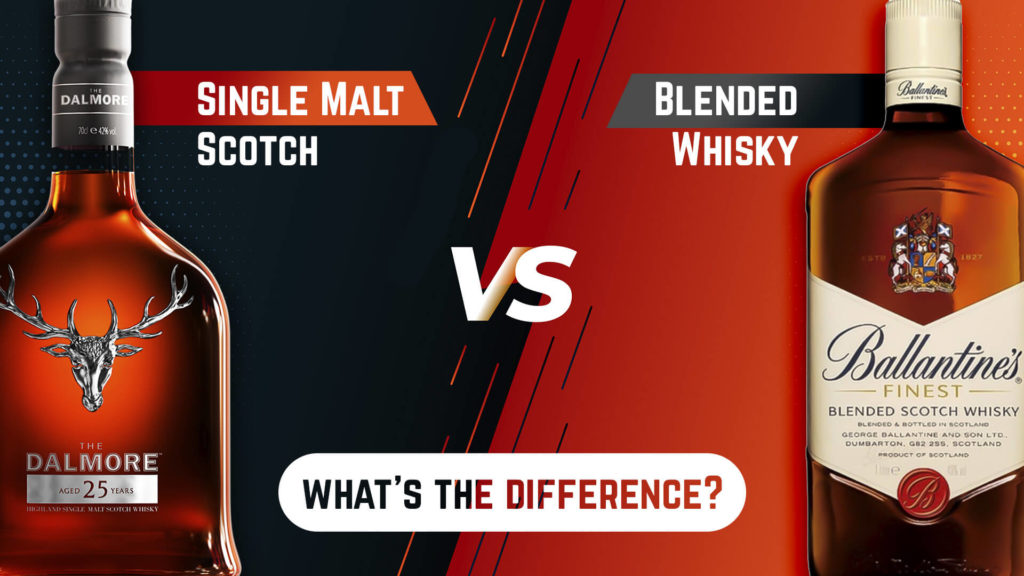Blog
Single Malt Scotch vs. Blended Whisky: What’s The Difference?
There’s nothing better than a good drink after a long day. But what do you pick up after a tiring day – single malt or blended whisky? Well, if it’s been too tiring, you’d ideally pick up both. However, the difference is still significant when choosing what’s best to drink.
Differences Between Single Malt vs. Blended Whisky
The difference between the two is deceivingly simple; however, it can make a difference. It isn’t a difference in quality as many would believe. Due to the nature of the single malt, many veteran whisky drinkers presume it is a better drink than a blended whisky.
What nature, you ask? Well, the distilling process of a single malt is what makes it different from a blended whisky. Any single malt gets created in the same distillery. It isn’t necessarily the same barrel as many assume, but the same distillery.
Blended whisky is unrepentant about where its contents come from. It is a mixture of whisky from different distilleries. Blended whisky is what you’ll find in most liquor stores.
The blended version is also a lot cheaper than a single malt. Due to the whisky being a blend from different distilleries, it gets priced lower. A Master Blender creates blended whisky. A blended scotch is said to consist of over 90% of all the whisky produced in Scotland!
Single malt gets created through a single batch production. The blend is of different aged whisky, and every scotch differs based on the distillery it is blended at. No two single malt will ever taste the same, and that is one of the defining features of the single malt.
When it comes to taste, single malts are known for character and distinct flavors. Scotch focuses on providing a treat to the senses in every sense. It keeps the drinker as close to the original earthiness as possible.
The blended whisky is less strong and appeals to a wider range of palettes. Overall, the flavor is more pleasing but lacks the distinct character of any single malt. The taste is generally an attribute of its primary ingredients – grains. A major ingredient is a grain, so the overall price of a blended whisky is lower and more affordable.
Single malts are known to be a connoisseur’s dream. Every malt has a different maturation period, and as every whisky drinker knows, the greater the age, the better the scotch. No single malt is ever the same, but they are all produced in Scotland. If a single malt has not been produced in Scotland, it is no longer a scotch. That adds to the overall appeal (and cost) of a single malt scotch.
A blended whisky does not have the same constraints. It can be produced anywhere in the world; however, every blended whisky requires a Master Blender. That is non-negotiable!
While the single malt is every connoisseur’s pride and joy, the blended whisky is no less. There is true mastery that goes into every barrel of whisky produced at any distillery. So, the next time you pick up a bottle of single malt or blended whisky, you will know exactly what’s happened in the background! Whisky is also one of the most popular spirits in cocktail recipes, so if you are feeling adventurous, check them out here!

